Latest News
Changing party loyalties and defections in 2022
Published
4 years agoon
By
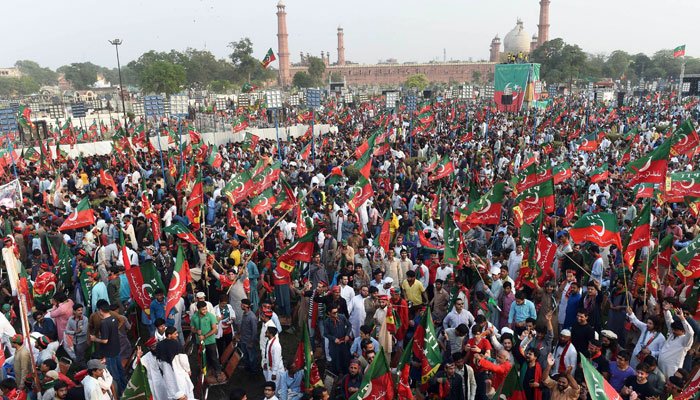
Power politics has once again shown us its ugly face in the last few days. Power politics is all about power, privilege, position and money with no room for ideology. Such politics promotes political corruption and opportunism. That is what we are witnessing right now. The PTI wants to retain power through any means and the Opposition wants to oust it via any means.
Many lawmakers who contested the 2018 general elections on the PTI ticket have decided to ditch the ruling party. It may be remembered that the PTI leadership was happy when many electables ditched the PML-N and PPP to join the PTI before the 2018 elections. The current ruling party had at the time made all sorts of compromises to gain power. And now Opposition parties are doing the same, relying on the same people to oust the PTI government that had brought the PTI to power.
We need principled and ideology-based politics to strengthen democracy and politics in Pakistan. Political opportunism and corruption will further erode the credibility of the democratic process.
While it was the beneficiary of defections in 2018, the PTI is now crying foul and accusing the Opposition of indulging in horse-trading and corrupt practices. Unfortunately, the PTI failed to establish healthy democratic traditions and culture in the country. And now Opposition parties are encouraging defections from within the PTI.
Politics of defections is not going to strengthen democracy, democratic norms and the political culture. Such undemocratic practices and traditions not only undermine parliamentary democracy but also taint the public image of elected representatives. Both the PPP and PML-N have suffered in the past due to the defections. But it seems they are not ready to learn lessons from the past.
The PTI is facing a revolt as nearly two dozen members of the National Assembly have declared publicly to side with the Opposition during the vote of no-confidence. Different media reports are indicating that more lawmakers are ready to join hands with the Opposition parties.
The PTI allies are closely watching the developments to make their own decision. It seems that Prime Minister Imran Khan is in deep trouble. Under the present circumstances, it is not hard to predict which side allies are going to take.
Political defections are not a new phenomenon in Pakistani politics. We have seen in the past how parliamentarians have changed their political loyalty overnight to serve the ‘larger national interest’ – or their suddenly awakened conscience.
Generally, the season of political defections starts a few months before the general elections. But this time it started a bit earlier. Many electables change political loyalty before almost every election. These electables have no permanent commitment to any political party.
The PTI government is blaming the Opposition for these defections, alleging that they have been offered money and other incentives for their votes. Such allegations not only tarnish the image of elected representatives but also raise questions on the integrity, legitimacy and transparency of the electoral process and politics.
The whole debate around the allegations of horse-trading and vote selling in the no-confidence move has created the impression that the use of money in the electoral process is confined just to the elections. However, this is a much more serious issue. Wealth is not just used during elections but also to enter into politics. The fact is that electoral politics, whether it is at the union council level or within national and provincial constituencies, is plagued by money, influence and power.
The tragedy is that all major political parties indulge in the same practice to lure electables from other parties to strengthen their position at the expense of others. Can political parties justify the presence of so many parliamentarians within their ranks who have contested every election on the ticket of a different party?
There are many parliamentarians who have never contested two elections from the platform of a single party. And yet every party wants to embrace them. It is surprising to see leaders who support and encourage defections in other parties, but cry foul when their own do the same.
What else can we expect from a political system that is based on money, power and patronage? When politics is not based on ideologies, principles and a democratic spirit, it can only produce a culture of political corruption, rigging and horse-trading. The cleansing of a political system is the responsibility of the political leadership. But the leadership of today is not playing its role in this regard.
Pakistan’s democracy is still an elitist democracy. People’s democracy — or rather a participatory democracy — is still a distant dream for the people.
The overwhelming majority of parliamentarians belong to the elite. And the results of every election simply reflect the fact that parliamentary politics and the political system are controlled by the elite and privileged while political activists who belong to the middle and working classes have consciously been kept out of this system. The working classes and the poor have been alienated from this political system.
The writer is a freelance journalist.
Originally published in The News
You may like
-
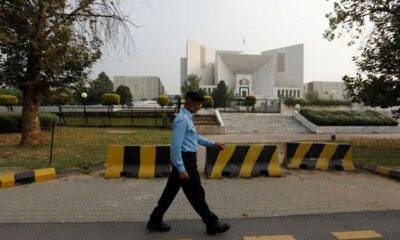

Supreme Court annuls trials of civilians in military courts
-
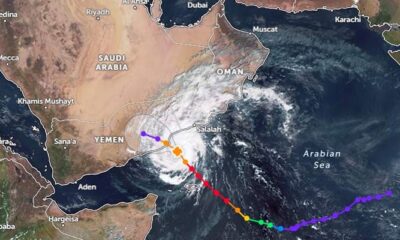

Sea conditions ‘very high’ as Cyclone Tej moves towards northwestward
-


IMF condition: ECC set to green light gas tariff hike today
-


UN experts claim Israeli actions in Gaza ‘violation of international humanitarian law’
-
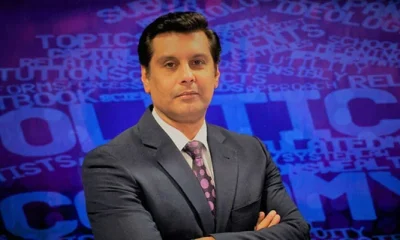

Arshad Sharif’s wife files lawsuit against Kenyan police over journalist’s killing
-


World Cup 2023: Pakistan opt to bowl first against Australia after winning toss

In a unanimous verdict, a five-member bench of the Supreme Court on Monday declared civilians’ trials in military courts null and void as it admitted the petitions challenging the trial of civilians involved in the May 9 riots triggered by the arrest of Pakistan Tehreek-e-Insaf (PTI) chief Imran Khan in a corruption case.
The five-member apex court bench — headed by Justice Ijaz Ul Ahsan, and comprising Justice Munib Akhtar, Justice Yahya Afridi, Justice Sayyed Mazahar Ali Akbar Naqvi and Justice Ayesha Malik — heard the petitions filed by the PTI chief and others on Monday.
The larger bench in its short verdict ordered that 102 accused arrested under the Army Act be tried in the criminal court and ruled that the trial of any civilian if held in military court has been declared null and void.
The apex court had reserved the verdict earlier today after Attorney General of Pakistan (AGP) Mansoor Usman Awan completed his arguments centred around the domain and scope of the military courts to try the civilians under the Army Act.
At the outset of the hearing today, petitioner lawyer Salman Akram Raja told the bench that trials of civilians already commenced before the top court’s verdict in the matter.
Responding to this, Justice Ahsan said the method of conducting proceedings of the case would be settled after Attorney General of Pakistan (AGP) Mansoor Usman Awan completed his arguments.
Presenting his arguments, the AGP said he would explain to the court why a constitutional amendment was necessary to form military courts in 2015 to try the terrorists.
Responding to Justice Ahsan’s query, AGP Awan said the accused who were tried in military courts were local as well as foreign nationals.
He said the accused would be tried under Section 2 (1) (D) of the Official Secrets Act and a trial under the Army Act would fulfill all the requirements of a criminal case.
“The trial of the May 9 accused will be held in line with the procedure of a criminal court,” the AGP said.
The AGP said the 21st Amendment was passed because the terrorists did not fall in the ambit of the Army Act.
“Amendment was necessary for the trial of terrorists [then] why amendment not required for the civilians? At the time of the 21st constitutional amendment, did the accused attack the army or installations?” inquired Justice Ahsan.
AGP Awan replied that the 21st Amendment included a provision to try accused involved in attacking restricted areas.
“How do civilians come under the ambit of the Army Act?” Justice Ahsan asked the AGP.
Justice Malik asked AGP Awan to explain what does Article 8 of the Constitution say. “According to Article 8, legislation against fundamental rights cannot be sustained,” the AGP responded.
Justice Malik observed that the Army Act was enacted to establish discipline in the forces. “How can the law of discipline in the armed forces be applied to civilians?” she inquired.
The AGP responded by saying that discipline of the forces is an internal matter while obstructing armed forces from discharging duties is a separate issue.
He said any person facing the charges under the Army Act can be tried in military courts.
“The laws you [AGP] are referring to are related to army discipline,” Justice Ahsan said.
Justice Malik inquired whether the provision of fundamental rights be left to the will of Parliament.
“The Constitution ensures the provision of fundamental rights at all costs,” she added.
If the court opened this door then even a traffic signal violator will be deprived of his fundamental rights, Justice Malik said.
The AGP told the bench that court-martial is not an established court under Article 175 of the Constitution.
At which, Justice Ahsan said court martials are not under Article 175 but are courts established under the Constitution and Law.
After hearing the arguments, the bench reserved the verdict on the petitions.
A day earlier, the federal government informed the apex court that the military trials of civilians had already commenced.
After concluding the hearing, Justice Ahsan hinted at issuing a short order on the petitions.
The government told the court about the development related to trials in the military court in a miscellaneous application following orders of the top court on August 3, highlighting that at least 102 people were taken into custody due to their involvement in the attacks on military installations and establishments.
Suspects express confidence in mly courts
The same day, expressing their “faith and confidence” in military authorities, nine of the May 9 suspects — who are currently in army’s custody — moved the Supreme Court, seeking an order for their trial in the military court be proceeded and concluded expeditiously to “meet the ends of justice”.
Nine out of more than 100 suspects, who were in the army’s custody, filed their petitions in the apex court via an advocate-on-record.
The May 9 riots were triggered almost across the country after former prime minister Imran Khan’s — who was removed from office via a vote of no confidence in April last year — arrest in the £190 million settlement case. Hundreds of PTI workers and senior leaders were put behind bars for their involvement in violence and attacks on military installations.
Last hearing
In response to the move by the then-government and military to try the May 9 protestors in military courts, PTI Chairman Imran Khan, former chief justice Jawwad S Khawaja, lawyer Aitzaz Ahsan, and five civil society members, including Pakistan Institute of Labour Education and Research (Piler) Executive Director Karamat Ali, requested the apex court to declare the military trials “unconstitutional”.
The initial hearings were marred by objections on the bench formation and recusals by the judges. Eventually, the six-member bench heard the petitions.
However, in the last hearing on August 3, the then-chief justice Umar Ata Bandial said the apex court would stop the country’s army from resorting to any unconstitutional moves while hearing the pleas challenging the trial of civilians in military courts.
A six-member bench, led by the CJP and comprising Justice Ijaz Ul Ahsan, Justice Munib Akhtar, Justice Yahya Afridi, Justice Sayyed Mazahar Ali Akbar Naqvi, and Justice Ayesha Malik, heard the case.
In the last hearing, the case was adjourned indefinitely after the Attorney General for Pakistan (AGP) Mansoor Usman Awan assured the then CJP that the military trials would not proceed without informing the apex court.

YouTube’s famous couple Sham Idrees and Froggy aka Sehar are taking sometime away from each other in their relationship.
Sham, taking it to his Instagram, left his fans in a shock after announcing his separation with Froggy. He wrote: “I would like to announce that me and froggy are taking sometime away from each other in our relationship. Please don’t involve me in issues concerning froggy, rabil or any of the other family members. I appreciate some privacy during this difficult time.”
Sham is a Canadian based YouTuber, who has a following of 1.4 million people on Instagram, is widely-known for his entertaining content. His videos often feature his wife Sehar along with him.
The couple tied the knot a few years ago and is parents to baby Sierra who is two-years old. The duo welcomed another daughter on September 28, 2022. They named her Shanaya Idrees.
After the birth of his first daughter, Sham Idrees also introduced his fans to his daughter Dua from his previous marriage.

- Minister says power generation units are temporarily shut in winter at night.
- Says frequency variation in national grid triggered outage.
- Says ministry trying to restore power in next 12 hours.
LAHORE/KARACHI/QUETTA/ISLAMABAD: A countrywide power breakdown, triggered by a “frequency variation” in the national grid early Monday morning, has left large parts of the country including Karachi, Lahore, Islamabad, Peshawar and Quetta without electricity.
Power Minister Khurrum Dastagir, while talking to Geo News, said that the power generation units are temporarily shut down in winter at night as an economic measure to save fuel costs.
“When the systems were turned on at 7:30am this morning one by one, frequency variation was reported in the southern part of the country between Jamshoro and Dadu. There was a fluctuation in voltage and power generating units were shut down one by one due to cascading impact. This is not a major crisis,” said the federal minister as the country plunged into darkness for the second time in four months.
The minister said that his ministry has started restoring some grid stations in Tarbela and Warsak.
“Peshawar Electric Supply Company (PESCO) and some grids of Islamabad Electric Supply Company (IESCO) have already been restored,” claimed the minister.
Talking about the breakdown in Karachi, the minister said that the matter in the port city is complicated as it has a complete electric supply system.
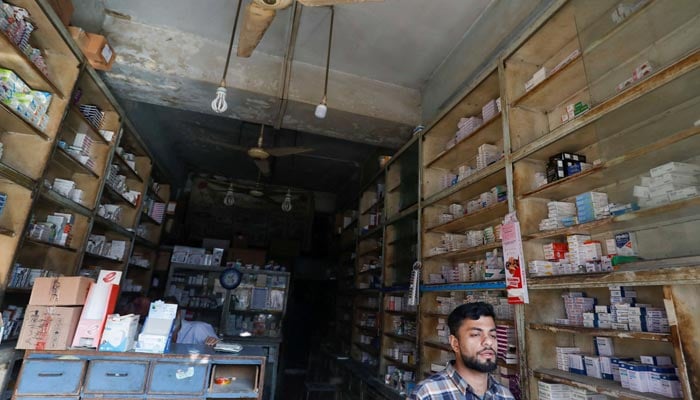
“We provide K-Electric about 1,000-1,100 megawatts routinely, however, it will be restored within a few hours. It is not certain how long will it take to sort this issue. However, my target is to restore electricity in the country in the next 12 hours,” said the minister.
Before the energy ministry’s announcement, different power distribution companies had confirmed the breakdown.
According to Quetta Electric Supply Company (QESCO), the two transmission lines have tripped leaving 22 districts of Balochistan, including Quetta without power.
Karachi power update
Meanwhile, K-Electric spokesperson Imran Rana said that at approximately 7:34am today, the national grid experienced a loss of frequency, affecting the power supply to multiple cities across Pakistan
“This has also cascaded to KE’s network affecting power supply to Karachi,” Rana said, adding the KE’s network is safe and protected.
“Our teams are actively monitoring the situation and enabling restoration efforts.”
An IESCO spokesperson said that its 117 grid stations were without electricity.
Meanwhile, PESCO also confirmed the outage in areas where it supplies electricity.
This is the second time within four months that a country was hit by a major power breakdown.
NEPRA takes notice
The National Electric Power Regulatory Authority (NEPRA), in a statement, said that it has taken “serious notice” of the power outage and directed the National Transmission & Despatch Company (NTDC) to submit a “detailed report”.
The statement also said that the regulator has previously imposed fines on similar outages in the 2021 and 2022. It also shared that NEPRA has consistently issued directives and recommendations on tackling such events in future.
Previous breakdown
In October of last year, Karachi, Hyderabad, Sukkur, Quetta, Multan, and Faisalabad were hit by a power outage.
At that time, the power minister said that nearly 8,000 megawatts of power went offline.
Back then, Dastagir had said that the simultaneous faults in two power lines, which had triggered the breakdown, at the same time was concerning for the government. He had also announced that an in-depth inquiry was ordered and promised action.
A timeline of power breakdowns in Pakistan
The country’s generation and distribution network has suffered eight major power breakdowns during the last nine years.
In 2014 and 2017, nationwide blackouts were caused by a fault in Tarbela Power Station while fog, frequency variation and the Guddu Power Plant fault were blamed for breakdowns in 2015, 2018, 2019, 2021, 2022 and 2023.
Every time the party in power announced to conduct a comprehensive probe and vowed to rectify the issues but nothing has happened despite multiple inquiries.


Supreme Court annuls trials of civilians in military courts

Sea conditions ‘very high’ as Cyclone Tej moves towards northwestward

IMF condition: ECC set to green light gas tariff hike today

Barwaan Khiladi: Kinza Hashmi discusses her role as Alia

Snap launches tools for parents to monitor teens’ contacts

WATCH: Pakistani traveller deported from Dubai for damaging plane mid-air

Learn First | How to Create Amazon Seller Account in Pakistan – Step by Step

Sajjad Jani Funny Mushaira | Funny Poetry On Cars🚗 | Funny Videos | Sajjad Jani Official Team

